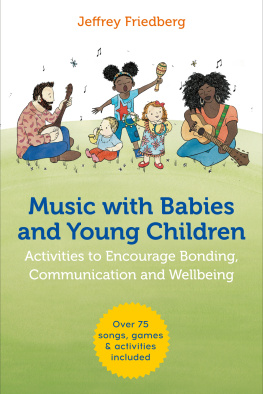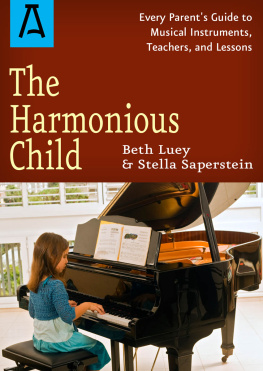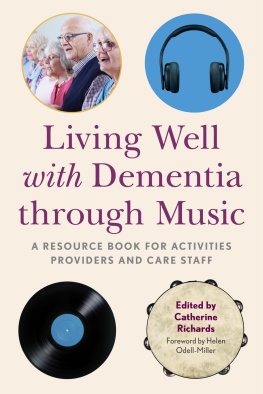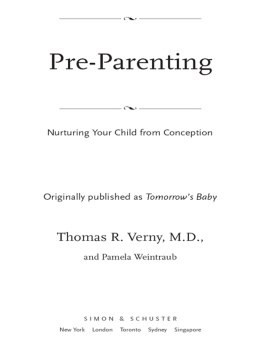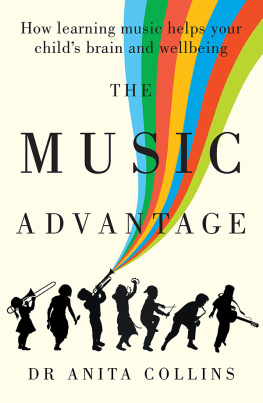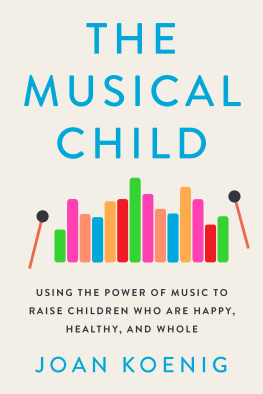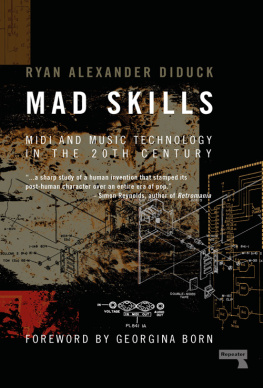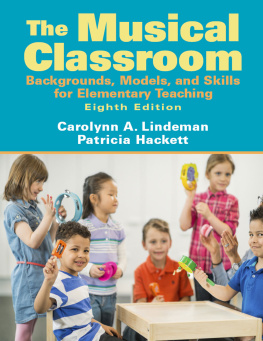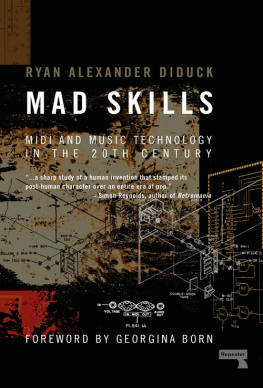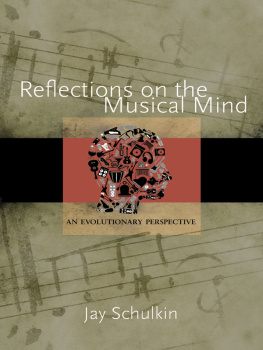Contents

MUSIC with BABIES
and YOUNG CHILDREN
Activities to Encourage Bonding,
Communication and Wellbeing
Jeffrey Friedberg
Illustrations by Chle Applin

Contents
Disclaimer
The information contained in this book is not intended to replace the services of trained medical professionals or to be a substitute for medical advice. You are advised to consult a doctor on any matters relating to your health or your childs health, and in particular on any matters that may require diagnosis or medical attention.
Every effort has been made to trace copyright holders and to obtain their permission for the use of copyright material (including music) where necessary to do so. The author and the publisher apologize for any omissions and would be grateful if notified of any acknowledgments that should be incorporated in future reprints or editions of this book.
The accompanying music and video files for select songs can be downloaded from www.jkp.com/voucher using the code BOOMESE.
INTRODUCTION
To music is to be human
Music is something we do. Musicologist Christopher Small (1998) coined the word musicking to describe the power and meaning of music. For Small, the musical work itself is just one part of the process of music. He sees music not as a noun, but as a verba process, not a product. Thats what this book is all about.
Musical parenting
Parenting is both a joy and a challenge.
Children bring us incredible joy. Their wide smiles, deep belly laughs and raised arms when they see us are heartwarming. Their eagerness and determination to master new skills is inspiring. Their unconditional love and complete trust in us to keep them safe and help them learn and grow is motivating.
But parenting is also a challenge. Why wont they go to sleep more easily? How can we help them manage difficult feelings? How can we keep them engaged and help them build their attention span and focus? How can we help them make friends and play nicely? How can we encourage kindness and thoughtfulness? What can we do to help them manage transitions better and go to daycare or preschool with less fuss? How can we help them try new things and be less anxious?
And just when you think youve got the hang of a challenge, your child changes, and you feel like youre starting all over again.
Ive got two words for you, musical parenting . Music can help bring joy to many of the challenges of growing up.
Please note that I use the term parenting broadly. It is my sense, and hopefully yours after you read this book, that whether or not you are raising your own or teaching, caregiving or providing therapy to a baby or young child, you are essentially parenting. In many ways you are a surrogate parent in that you are bonding with a child in helping them feel safe and secure and feeling that their needs will be met relatively quickly and consistently. You are also, hopefully, guiding them in having the experiences and learning the skills they need to develop and reach their potential as best they can. I also use the term your child throughout the book to refer to ones own children as well as ones student, client or patient. Please keep this in mind as you read through this book.
Why is music important in the early years?
The early years are incredibly important for a childs development. Young childrens brains are developing at an unprecedented rate. They are building skills that are the foundation for all future development. Research continues to tell us more and more every day about the huge impact that the early years have on how we function as adults.
More specifically, research shows that music can help children develop skills and confidence in all areasand even develop bigger and faster brains! (More about this in .) Musical parenting is essentially tapping into our brains natural musical abilities. We are pre-wired to make musicour brains have evolved to use music for survival, for communication, for the passing down of knowledge. Humans have used music in parenting for ages (possibly before we even developed language), to help children learn, grow and develop. Building a relationship with your child through music can be incredibly meaningful, intimate and educational.
While music can be beautiful to hear and skilled performers amazing to watch, musics ultimate benefits are more than aesthetic. The power of music is in how it helps us throughout our lives to manage the challenges, and experience the joys, of being human. The power of parenting through music lies in the process, rather than the product, of using music to help us survive; music is simply something we do.
Music can help you parent better and more confidently. When we parent intentionally, purposefully and constructively with music, we are helping our children develop optimally in order to be their best selves.
Why did I write this book?
As a new parent, over 20 years ago, I was resistant to the parenting method books that my wife thoughtfully tried to get me to read. With my kids I wanted an organic and intuitive process to guide our relationships and their development. I didnt want to stick my nose in a book or take anyone elses advice. Looking back, I realize this was more than a little contradictory. As a board-certified music therapist, I was using a wide range of books and theories to guide my music therapy work with children and adults with a variety of challenges and needs. But this felt different.
I didnt want to consult any parenting books with my own children. I wanted to be more in the moment with them, making forts out of cardboard boxes, reading the classic childrens books, and singing and drumming together. I wanted to draw from my own experiences growing up to guide my parenting. I thought I knew all the ways to help my kids have the best childhood possible.
But as they grew, I realized I needed help with the challenging moments. This parenting thing wasnt quite as easy as I had imagined. I came to embrace having a balance between being in the moment with my children, spending some time learning and understanding how they develop, and creating a tool kit of strategies to use in the challenging moments. A little knowledge went a long way in helping me be a better parent and in helping my children manage the process of growing up. So now that my children are more or less grown, it seems like the right time to share what Ive learned about music and childrenfrom both being a parent and from my 24 years as a music therapistwith other parents and caregivers.
My goal in writing Music with Babies and Young Children has been to combine knowledge, theory and science with musical activities and experiences. I want Music with Babies and Young Children both to help you be more in the moment with your children, enabling them to have playful and organic experiences that improve their development, and to provide some fun, easy-to-use and evidence-based activities and strategies.
I have tried to organize what we know about child development and music into a creative and practical approach to parenting and raising young children. I have tried to show how we are a musical species, and the reason we have music is not simply aesthetic, but perhaps more importantly for enhancing health and wellbeing, learning and development.
I have tried to make music accessible to everyone, musicians and non-musicians alike, to use on a daily basis in order to be more effective, confident and creative in their parenting. Ultimately, I hope this book, and approach, helps children to have happier childhoods through accessing their inner musicians.

